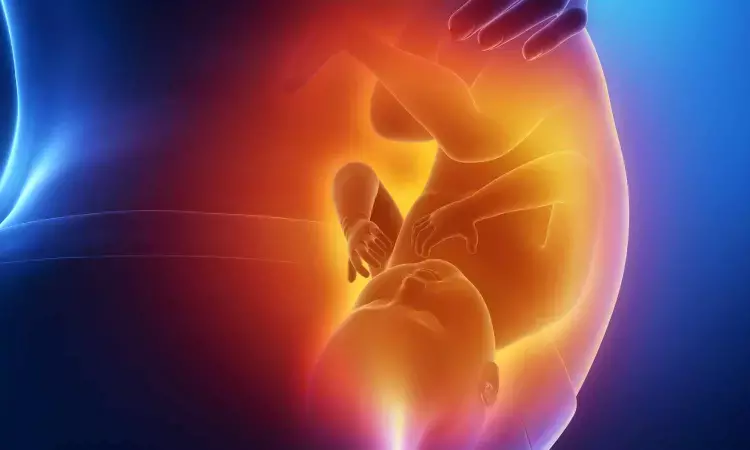- Home
- Medical news & Guidelines
- Anesthesiology
- Cardiology and CTVS
- Critical Care
- Dentistry
- Dermatology
- Diabetes and Endocrinology
- ENT
- Gastroenterology
- Medicine
- Nephrology
- Neurology
- Obstretics-Gynaecology
- Oncology
- Ophthalmology
- Orthopaedics
- Pediatrics-Neonatology
- Psychiatry
- Pulmonology
- Radiology
- Surgery
- Urology
- Laboratory Medicine
- Diet
- Nursing
- Paramedical
- Physiotherapy
- Health news
- Fact Check
- Bone Health Fact Check
- Brain Health Fact Check
- Cancer Related Fact Check
- Child Care Fact Check
- Dental and oral health fact check
- Diabetes and metabolic health fact check
- Diet and Nutrition Fact Check
- Eye and ENT Care Fact Check
- Fitness fact check
- Gut health fact check
- Heart health fact check
- Kidney health fact check
- Medical education fact check
- Men's health fact check
- Respiratory fact check
- Skin and hair care fact check
- Vaccine and Immunization fact check
- Women's health fact check
- AYUSH
- State News
- Andaman and Nicobar Islands
- Andhra Pradesh
- Arunachal Pradesh
- Assam
- Bihar
- Chandigarh
- Chattisgarh
- Dadra and Nagar Haveli
- Daman and Diu
- Delhi
- Goa
- Gujarat
- Haryana
- Himachal Pradesh
- Jammu & Kashmir
- Jharkhand
- Karnataka
- Kerala
- Ladakh
- Lakshadweep
- Madhya Pradesh
- Maharashtra
- Manipur
- Meghalaya
- Mizoram
- Nagaland
- Odisha
- Puducherry
- Punjab
- Rajasthan
- Sikkim
- Tamil Nadu
- Telangana
- Tripura
- Uttar Pradesh
- Uttrakhand
- West Bengal
- Medical Education
- Industry
Cesarean delivery linked to higher risk of pain and sleep problems after childbirth: Study

New mothers are more likely to experience severe pain that disrupts sleep and activities of daily living, as well as develop sleep disorders, if they give birth by cesarean delivery (C-section), suggests research presented at the ANESTHESIOLOGY® 2025 annual meeting.
“Sleep is often overlooked in postpartum recovery, but it is central to a mother’s physical and mental health,” said Moe Takenoshita, M.B.B.Ch., lead author of the study and a postdoctoral scholar in the department of anesthesia at Stanford University Center for Academic Medicine, Palo Alto, California. “Cesarean delivery in particular appears to increase the risk for severe pain and sleep disorders, which can lead to postpartum depression, thinking and memory problems, and fatigue, as well as disrupt bonding with their babies and relationships with family and friends.”
The study included both qualitative and quantitative analyses. For the qualitative analysis, the authors interviewed 41 mothers about their pain and sleep experiences after childbirth, 24 of whom had vaginal births, 11 who had scheduled C-sections and six whose C-sections were unplanned. More than two-thirds of the mothers who had C-sections (73% of the scheduled cesareans and 67% of the unplanned) reported severe pain that disrupted sleep and activities of daily living, compared to 8% of those who had vaginal births.
For the quantitative study, the authors analyzed a nationwide insurance database of more than 1.5 million mothers who delivered babies between 2008 and 2021. They determined that individuals who have C-sections are 16% more likely to be diagnosed with a new sleep disorder (e.g., insomnia, sleep deprivation or obstructive sleep apnea) between a month and a year after giving birth, compared to those who delivered vaginally.
New mothers, especially those recovering from C-sections, should be sure to manage pain adequately, since untreated pain can worsen sleep, said Dr. Takenoshita. Other measures that can help to improve sleep include regular exercise as appropriate, sleeping when the baby sleeps, avoiding caffeine or alcohol late in the day, and relaxing before bed by taking a bath or practicing deep breathing.
“About one-third of U.S. births are C-sections,” said Dr. Takenoshita. “Those who are planning a C-section should understand that the procedure is linked to more severe pain after delivery and a higher risk of sleep disorders. Anyone having sleep problems during pregnancy or after childbirth should discuss their concerns with their physician, who can evaluate the issue, make recommendations and refer them to a specialist if necessary.”
Dr Kamal Kant Kohli-MBBS, DTCD- a chest specialist with more than 30 years of practice and a flair for writing clinical articles, Dr Kamal Kant Kohli joined Medical Dialogues as a Chief Editor of Medical News. Besides writing articles, as an editor, he proofreads and verifies all the medical content published on Medical Dialogues including those coming from journals, studies,medical conferences,guidelines etc. Email: drkohli@medicaldialogues.in. Contact no. 011-43720751


